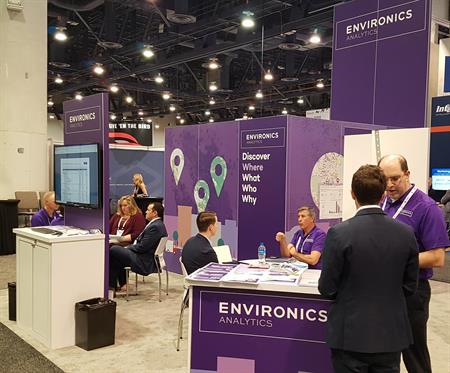
ICSC RECon 2019 – Analytics Takeaways from the Marketplace Mall
 |
So what were the hot themes emerging from this year’s show from a data and analytics perspective? While difficult to synthesize to just a few key topics (given that every client has a unique set of challenges), three primary themes surfaced in the conversations we had:
1. It’s Not Just About Mobile Data
The message from the floor was clear: Mobile data seems to be omnipresent, but organizations are having a difficult time differentiating the offerings. While companies we spoke with appreciate the potential of mobile data, they want to find a better way to leverage this resource. For many of the attendees (e.g. mall developers, tenant representatives) who don’t have actual customer information, they see mobile data as a new way to collect visitor data derived from location-enabled apps on mobile devices. However, it is only when the visitor data are connected to a variety of other databases (demographics at a minimum, but also financial data, behaviors, preferences, attitudes, spending and much more) that the consumer insights come into focus. The real value to organizations—such as the developers, brokers and retailers—is in helping them understand what that the visitor data means, how they can interpret it easily and, most importantly, how they can put it into action to solve their challenges.
2. One Size Does Not Fit All
With a marketplace made up of a multitude of organization types—from one-person brokerages to multi-million dollar developers—the range of needs (and budgets) for data-driven products and services is just as varied. And so are the levels of sophistication in terms of how to leverage data effectively. While a comprehensive analytical platform that handles copious amounts of location data, produces beautiful maps and incorporates site models may suit some, others are looking for push-button simplicity to provide insight for a single trade area. What emerged from RECon 2019 is that there is a general understanding around the imperative to harness data as a business strategy, but that organizations really need flexibility from vendors to help them match the right solution to their needs, capabilities and pocketbook.
3. The Need for Collaboration
Organizations of all shapes and sizes in the retail real estate space are looking for help when it comes to data and analytics. Advanced organizations are looking for help with sophisticated models and data management strategies. Mall developers and tenant representatives that are just starting on their analytical journey tend to benefit from having a deeper appreciation of what data matters to them and how it can be used to understand a trade area better or select the optimal location. For those organizations that fall somewhere in between, they want to know the logical next step in becoming a data-driven organization, leveraging new functionality, databases and sector know-how. In short, organizations are not just looking for a technical solution; they are looking for an analytical partner (as an extension of their own team) who can help them use the products and services to navigate both familiar and uncharted waters.
Despite some headwinds facing the retail real estate industry in recent years (due in part to the “Amazon Effect” and evolving shopper behaviors), the market remains strong. The industry is embracing data-driven decision-making, recognizing that data is a competitive asset that cannot only help them better understand consumers and markets, but also help them make better financial decisions. In addition, as they continue down this road, no matter their level of experience and sophistication, they will continue to need assistance in finding the right analytical solutions for their specific situation.
___________
Evan Wood is the Chief Marketing and Sales Officer at Environics Analytics, a leading provider of data, analytics and marketing services. Environics Analytics has extensive experience working with organizations in the real estate and retail sectors, providing flexible and practical solutions for organizations of all sizes.


